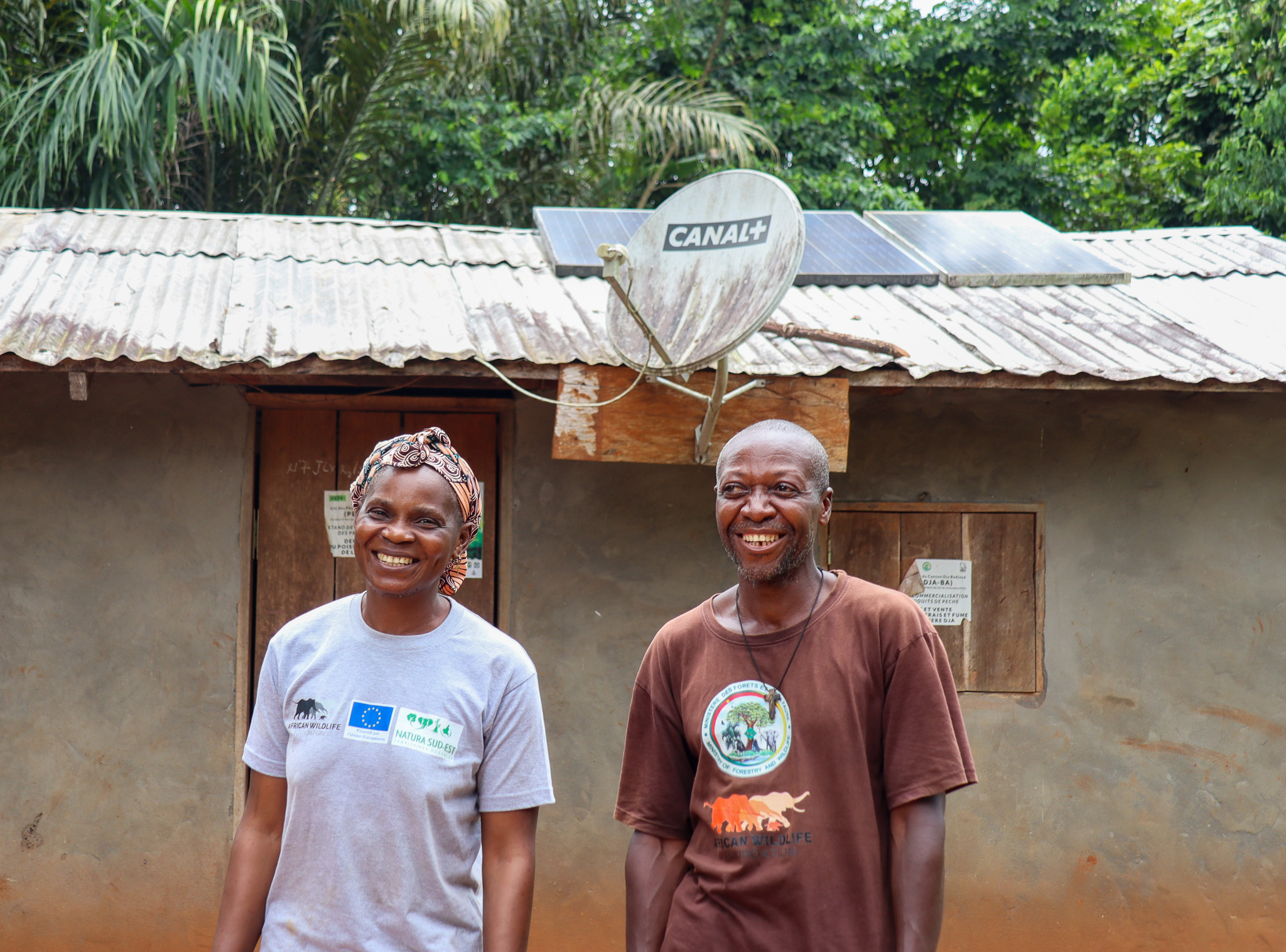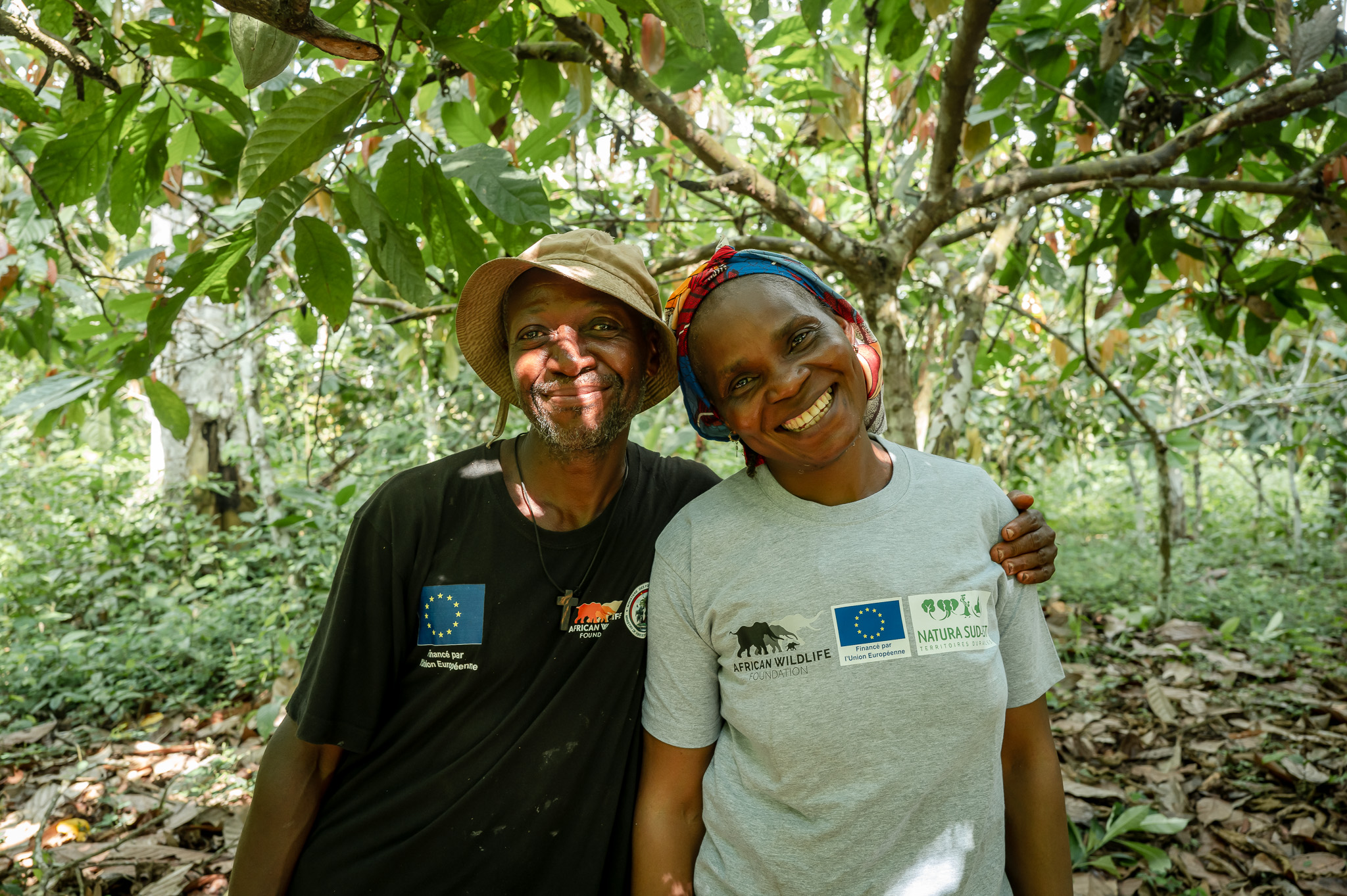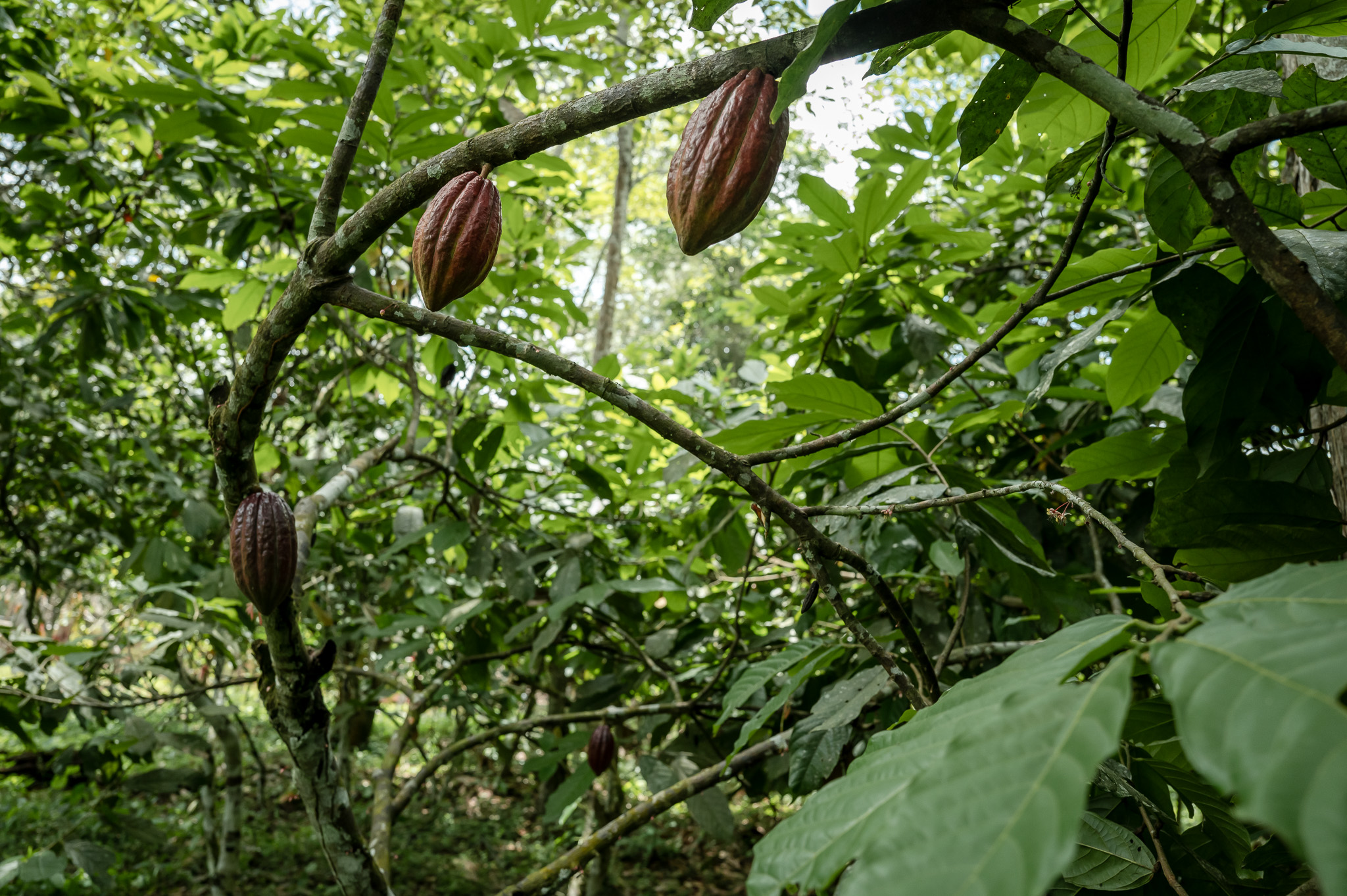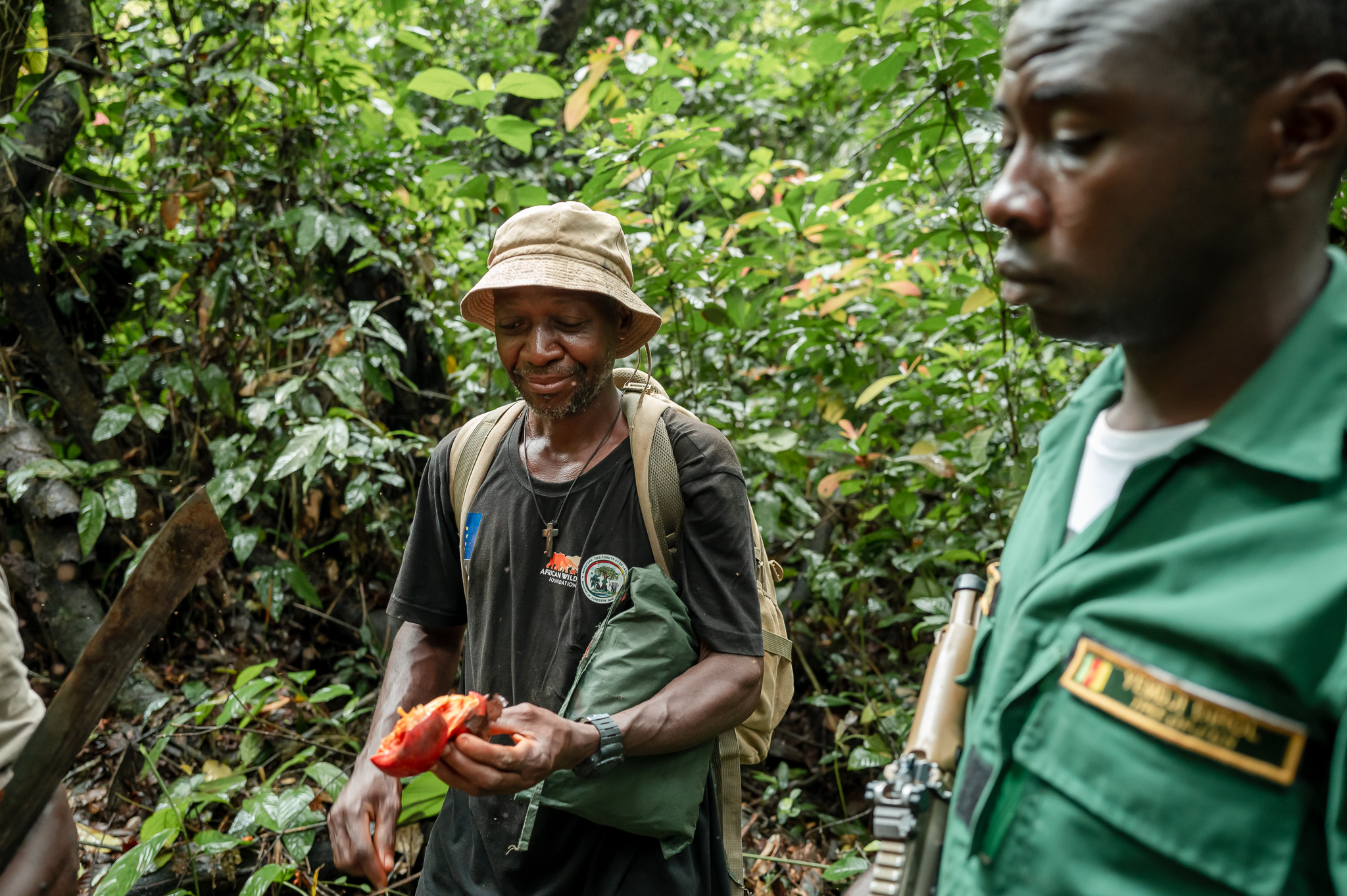How Cocoa Farming is Powering Conservation in Cameroon

Clautilde and Sere Etienne stand infront of their Solar powered home, Dja, Cameroon.
Under the bright midday sun in Schouam, a small village bordering the Dja Faunal Reserve in south-eastern Cameroon, the tin roof of Mango’o Clautilde and Sere Etienne’s home shines against a lush backdrop of forest.
Just steps away, Etienne prepares tools for his afternoon patrol. Their home, powered by solar energy and surrounded by greenery, symbolizes how community-led conservation enables people and wildlife to thrive side by side.
Since 2015, AWF has worked with communities around the Dja Faunal Reserve, a UNESCO World Heritage Site spanning over 526,000 hectares, to promote sustainable livelihoods and protect one of Central Africa’s most vital ecosystems.
With support from UNESCO and the European Union (EU), AWF has empowered local families like Clautilde and Etienne’s to actively participate in preserving the environment. Their story is a powerful case study of human-wildlife coexistence in Cameroon.
A Farm That Protects the Forest
The couple manages a 3-hectare cocoa farm where they cultivate cocoa under the shade of native tree species. They also grow cocoyam, maize, and groundnuts, using indigenous practices that reduce pressure on surrounding forests.

Sere Etienne and his wife Mango'o Clautilde, AWF community partners, on their cocoa farm in Schouam village – Dja, Cameroon.
Their journey into sustainable cocoa farming was supported by training and seedling distribution through AWF’s work started under the Ecofac 6 Project and is now continuing and expanding through the Natura Sud-Est and NaturAfrica projects, major EU-funded initiatives protecting biodiversity and fragile ecosystems across Central Africa.
Clautilde also learned to make natural soap using locally sourced ingredients such as palm oil and ash—a skill that has become both practical and profitable.
“With the knowledge I gained from the training, I can now make soap for my home, send some to my children in town, and even sell it to my neighbors,” she says.
Etienne adds that their farming practices have transformed since joining AWF’s training sessions.
“We were taught about deforestation and understood how important it is to protect forests. That’s why we’ve been replanting cocoa seedlings on our old cocoa farms to help restore our land the right way,” he explains.

Cocoa plant – Dja, Cameroon.
Today, their farm yields enough to feed their family and support their children’s education.
But the couple has bigger ambitions.
“In the next five years, we hope to expand our cocoa farm to 10 hectares. That way, we can restore more land and secure a better future for our children,” Etienne says.
Guiding Conservation on the Ground
While Clautilde leads much of the work at home, Etienne contributes to wildlife protection in the field. As a community conservation guide, he joins patrols alongside ecoguards to deter illegal activities such as poaching and illegal logging. These patrols also help monitor wildlife and collect data crucial for managing the ecosystem.

Sere Etienne assisting Eco-guards during a patrol session.
“Working with the ecoguards has made me realize how important protecting our forest is,” says Etienne. “It’s not just about stopping poachers, it’s about making sure our children inherit a world that can provide for them.”
Etienne’s work aligns with the Natura Sud-Est and NaturAfrica projects, both supported by the European Union, which build on Ecofac 6 to combine biodiversity protection with community development.
“AWF focuses on improving ranger capabilities and empowering communities through sustainable livelihoods,” says Lesly Akenji, AWF’s Dja Landscape Director. “Families like Clautilde and Etienne’s are at the heart of our mission. Their commitment shows that conservation is most effective when it is community-led and supported by strong partnerships.”
Building a Future Through Conservation
Thanks to their involvement in AWF’s community programs, Clautilde and Etienne have improved their family’s well-being. The combined income from cocoa farming, soap production, and Etienne’s conservation work has enabled them to afford education for their children and invest in their future.
Their story reflects a growing movement across Africa—where rural communities, empowered with the right tools and support, are leading the charge in conserving Africa’s iconic landscapes and wildlife.